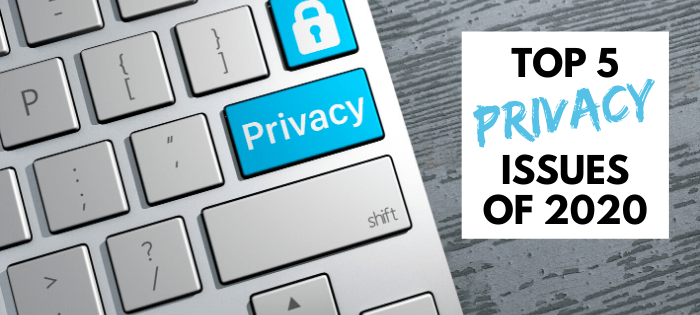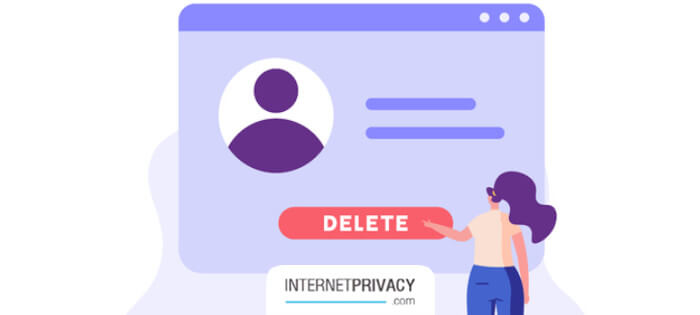Top 5 Online Privacy Issues

What Is Privacy Online?
More and more people access the Internet nowadays, most of them unaware of the online privacy issues lurking all around the digital world. Other than the risk of being the victims of identity theft, one other thing many Internet users are totally oblivious of is that – while they surf the net in search of information, information is being gathered about them too.
To some folks, security and personal privacy concerns aren’t special issues. In contrast to these users, there are also many people that are extremely preoccupied with Internet privacy issues and how our privacy vanishes online. They know that the Web is full of scams and identity thieves, so without a strong privacy policy, they choose to restrict the use of the Internet and abstain from purchasing products online.
Businesses that wish to survive in the digital world must be aware that the international reliability of online privacy protection is essential to enhance the increase in e-commerce. That’s because more and more users today are looking for better privacy policies that can secure their private information and help ease their concerns regarding online privacy issues. Specifically, they tend to keep away from sites using cookies and scanning statements that can pose risks to their private data.
In reality, shopping online is not at all different from buying from a bricks and mortar shop. Both of them equally create the exact same privacy concern and tracking a person’s navigation while online can be compared to a camera looking at people moving while in a shop.

What Are Online Privacy Issues?
You might think that you won’t have to deal with any of the common online privacy issues as your e- activity is not worth tracking. All you do is browse through different websites and search engines, or post updates on social media platforms. No one could have an interest in that, right?
Wrong. That couldn’t be further from the truth!
For hackers and cyberthieves, this data that you produce is a rich type of personal information, stating more about your online activities than you might even imagine.
Battles have long raged over how third parties can access and use your data. But without the right privacy laws and with emerging technologies appearing constantly, our online privacy faces newer and more powerful threats each day. And these may have an even bigger effect than what is estimated on how your Web-based life is either protected or exposed.
Those preoccupied with what are the issues of privacy when online, ought to pay careful attention to the following 5 major threats, including:
Cookie Generation
Wondering which is one of the biggest threats to our privacy?
Meet the cookies!
Cookies are fragments of information that gets saved whenever you visit a website. This information is later used by sites to customize your browsing experience and to recognize your device the next time you revisit that particular website.
Ever wondered how come you are receiving personalized ads as if someone knew exactly what you want and what you are searching for? Well, you can definitely thank the cookies for that.
Online privacy issues caused by the hidden cookie application that monitors your browser and personal data are likely to multiply in the nearest future. Wondering why?
Because your system is liable to collect more cookies.
Five to ten years ago, in the event that you opened some specific websites in your web browser, you would get maybe a couple of cookies from advertising/marketing agents, but this would basically be it.
Long gone are those times now. With the advertising world, the entrepreneurs, and all the other information profiteers depending on cookies to spy on your identity and learn what you could be interested in shopping, the cookies are just getting bigger and stronger each day.
Online Privacy Issues Caused By Cloud Data
You might love how easy it is to grab data through cloud services. But so do conduct law enforcement bureaus.
If you use email services, keep files in Google Drive, or upload sensitive information like your credit card or medical records, whatever you set up there can be retrieved by somebody else.
Unsecured Location Sharing
Your cell phone is the first nosy parker, but the locations you post and share on social media sites are revealing sources, too. Showing your whereabouts got even simpler now as many people are using a multitude of location-beaming devices like smarter watches, Google Glasses, or car trackers.
Equipped with all this information, advertisers might (for example) send you promotions for nearby businesses, wherever you are.
Data Never Forgets Individuals
Posting and tagging photographs online may feel like fun. But behind the scenes, it helps construct a facial recognition catalog which makes escaping notice increasingly hard for anybody.
If these social networking platforms would use this data strictly to help you find other people you know on their site, it might be okay. But once these websites start selling user information to third parties, image data might be integrated leading to serious privacy and GDPR concerns.
Social networking websites make one of the leading facial recognition databases in the world and the tremendous number of photographs uploaded to these websites cause one of the main online privacy issues surrounding this technology.
Scanning Cybersecurity
You may not be a hacker, but this doesn’t mean your online activity won’t be scanned for signs of cybercrime. The federal government has made cybersecurity a high priority, as more and more concerns are raised regarding the vulnerability of the nation’s infrastructure in case of an online assault.
“Make no mistake, everything we touch that is digital in the future will be a data source” says the IAPP’s Hughes.
In conclusion, you might be rightfully wondering, “Is privacy dead in the online world?”.
Not yet. But one thing is certain though. Resolving information security and online privacy issues is essential for both Internet users and companies wishing to continue doing business online. If you have more questions regarding how to protect your identity online, don’t hesitate to contact us at our email address or call us for immediate assistance.





